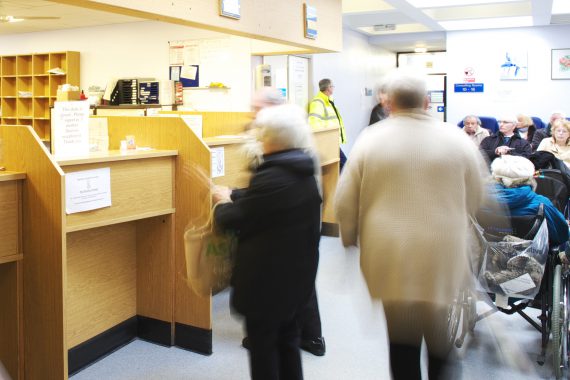Nearly half of patients that took part in a Scottish study on missed GP appointments have missed one or more appointments in the last three years.
The study published in The Lancet Public Health looked at the appointment history of 550,083 patients over three years and found that 46% missed one or more appointments in that time, with 19% missing more than two appointments.
Of the 13,623,316 appointments studied over the three-year research period, 12% were not attended – of which 91% were missed by serial DNAs.
Furthermore, the researchers found that female patients over 90 years old and from a low socioeconomic background are the most likely to miss multiple appointments.
The study also found that practices where patients have to wait between two and three days to book an appointment had the highest did not attend (DNA) rate compared with practices that offer on-the-day appointments.
To mitigate the number of DNAs, the study said that practices should consider ‘selectively offering on-the-day appointments for patients at high risk of serial non-attendance’.
It said: ‘Practices in more affluent areas seem to be more poorly equipped to accommodate patients who repeatedly miss multiple appointments than practices in more deprived areas and could benefit most from similar adaptations to their existing appointment systems.’
Dr Andrea Williamson, lead author of the study from the University of Glasgow, said the study considers frequently missed appointments as ‘health harming behaviours – complex behaviours that have their roots in experienced adversity’.
She said: ‘From our findings it would suggest that future ways to increase attendance should focus on positive strategies to support patient’s attendance.’
A Pulse survey has previously revealed that just over half of GPs would be willing to fine patients who miss appointment.
Health secretary Jeremy Hunt also said two years ago that he did not have a problem ‘in principle’ in charging patients for missing appointments.
But RCGP chair Professor Helen Stokes-Lampard said their main objection to charging patients is that doing so ‘could disproportionally impact on the most vulnerable in society, and this new research backs this up’.
She said: ‘We understand why GPs and our teams get frustrated when patients don’t turn up to their appointments.
‘It’s wasteful for everyone, but in some cases this can be a warning sign that something significant is wrong with the patient and follow-up action is needed – and it may not always be a physical problem but sometimes a psychological or social issue.’
Dr Richard Vautrey, BMA GP Committee chair, added: ‘Missed appointments do result in valuable time and resources being wasted, but we do need to understand the reasons why this occurs.’
He called for a targeted campaign to enforce ‘the importance of attending booked appointments, as well as the negative impact missing appointments have on other patients’.
The study comes as GP appointments have become harder to come by, with the average waiting time now around two weeks.
Pulse October survey
Take our July 2025 survey to potentially win £1.000 worth of tokens















